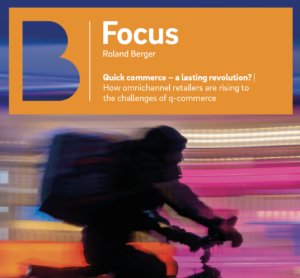Monthly archives: December, 2022
Proximity for all: implementing inclusive 15-Minute City concepts
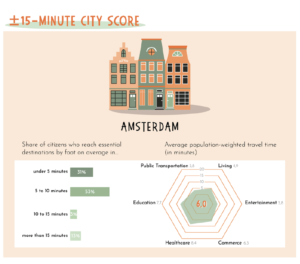
Researchers from Munich shed new light on the accessibility and inclusion debate in urban mobility. Taking Carlos Moreno’s 15-Minute City concept as a starting point, nurtured by the latest insights from recent experiments, the scientists developed a practitioner’s roadmap highlighting concrete steps to plan, develop and implement the 15-Minute City in a few neighborhoods but …
AIANY presents plan for city logistics in NYC
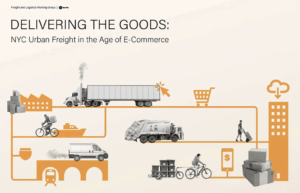
Each year, 365 million tons of freight move through the New York City area. While this flow of goods brings many economic benefits, it also raises complex challenges, especially at the middle-mile and last-mile segments of the delivery supply chain, contributing to traffic congestion, greenhouse gas emissions, public health and safety issues, and the degradation …
Research shows: charging for returns will earn webstores more

The e-commerce market has boomed in recent years. But, with the growth in sales, the number of returns has also increased significantly. Whereas online stores used to entice consumers with free returns, it is major brands such as H&M and Zara recently started charging fees. By doing so, they want to reduce the cost of …
How cargo cycle drivers use the urban transport infrastructure
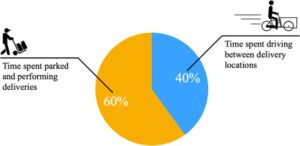
Electric cargo cycles are often considered a viable alternative mode for delivering goods in an urban area. However, cities in the U.S. struggle to regulate cargo cycles, with most authorities applying the same rules for motorized vehicles or traditional bikes. One reason is the lack of understanding of the relationship between existing regulations, transport infrastructure, …
Outsourcing the last mile: should regulation be strictly focused on the urban segment?
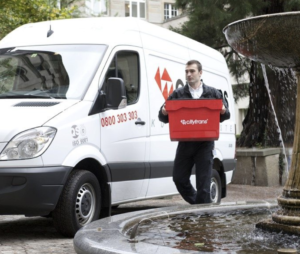
Because of the development of e-commerce and the reduction of shipment size, the parcel delivery sector is growing rapidly. However, faced with their client’s demands and constraints of urban cities (parking, congestion, delivery density), the parcel delivery groups have chosen to outsource their urban deliveries. This enables them to reduce payroll costs and implies economic …
Property owners as possible game changers for sustainable city logistics: a case study
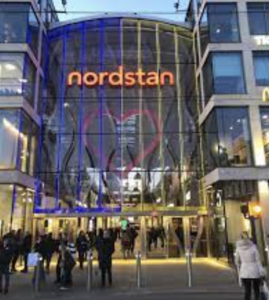
Commercial activity and supporting freight movements are essential to urban life. Unfortunately, urban freight has adverse effects on sustainability and requires innovative approaches to enhance the positive aspects and minimize the negative ones. There is a common understanding among practitioners that the negative impacts of urban freight can be alleviated with better knowledge about the …
Research: Barriers to business model innovation in city logistics in Sweden
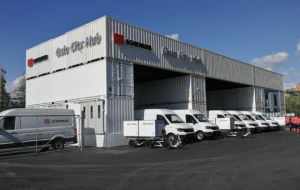
Business model innovation (BMI) is an essential but challenging process potentially hampered by obstruction and confusion. Despite its significance, BMI is an underexplored topic in research on urban freight transport. A new paper reviews the existing literature and reinterprets five cases of attempted BMI in the Swedish urban freight transport sector by studying two examples …
Autonomous e-commerce delivery in France
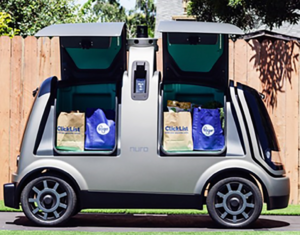
Automation represents the next big buzz in transport and promises many benefits for society, including more efficient use of space, energy, and time and reduced costs. Accordingly, an impressive range of autonomous vehicles has been introduced, covering personal and goods transport applications. In particular, in response to the global pandemic linked to COVID-19, autonomous vehicles …
Research: consolidation through resourcing in last-mile retail logistics
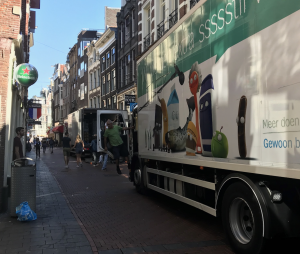
A new paper assesses how various ways of organizing last-mile logistics impact resource utilization and, in turn, opportunities for consolidating goods. The paper combines a conceptualization of resourcing and consolidation from the literature with an analysis of contemporary last-mile logistics options in the Swedish retail market. Based on the analysis of three forms of last-mile …

